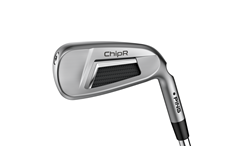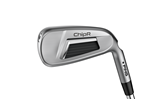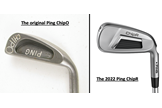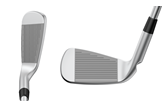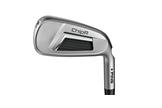Ping ChipR Review
Last updated:
-
At a glance
- TG Rating
- Owner Rating
What we say...
The Ping ChipR is designed to be used with a putting style stroke to improve the consistency of the 33% of golfers who struggle with the short game.
Chippers have always been seen as the hallmark of high handicap golfers who lack confidence in their short game – even though lots of players swear by them.
But in a more tolerant world Ping say now is the perfect time to resurrect the idea, believing even decent golfers can benefit from chipping with a putting motion more often.
In typical Ping fashion the brand asked their engineers to study how many golfers suffer with poor chipping and pitching consistency. It didn’t take the team long to discover that whilst many people won’t admit to having a terrible short game, many golfers would like to improve.
So, 47 years after the original Ping ChipO hit the market, Ping are introducing the ChipR, and its feet are planted firmly in the camp of being a performance enhancing golf club.
RELATED: How good is the Ping Glide 4.0 wedge?
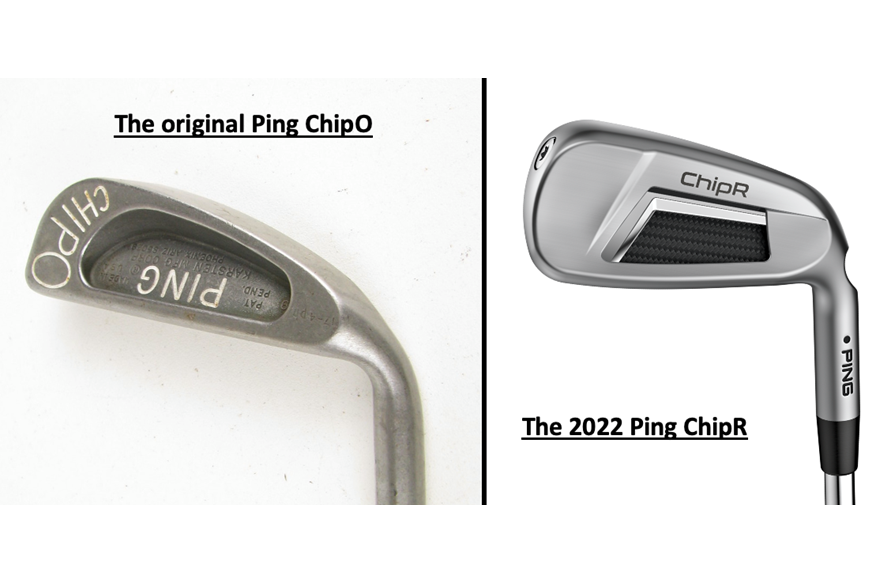
The Ping ChipR is not for everyone
Chipping and pitching can strike fear into golfers even at the highest level. New US Open champ Matt Fitzpatrick chips kack-handed, while others advocate chipping using just a singe hand. Today, short game anxiety extends much more widely than just high-handicap amateurs.
Ping say a third of golfers are likely to benefit from using their new ChipR. The research shows conventional wedges are duffed and thinned regularly, which means a massive drop-off in consistency.
Where using a ChipR and putter style motion golfers see a rise in shot length control, with players reducing their proximity to the hole consistency from 20-80 feet out.
RELATED: Do rusty wedges spin more?
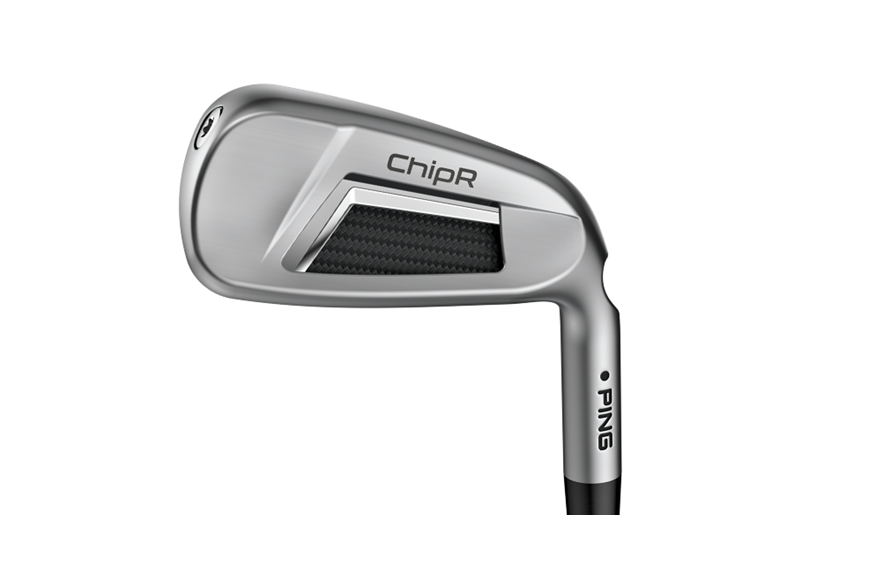
The Ping ChipR set-up
The original ChipO had a 5-iron loft and 9-iron shaft length. But put together with today’s golf balls and green surfaces being so slick, Ping say that set-up makes it difficult to chip optimally.
So their engineers have introduced the loft of a 9-iron (38.5°), and coupled it with the traditional shaft length of a putter (35in). By using a 70° lie angle golfers are encouraged to get more over the ball and use a putter-style stroke to chip too.
A heavier head weight (more like a putter or lob wedge) also helps further increase consistency and predictability.
RELATED: Ranked by spin – Best 2022 Wedge
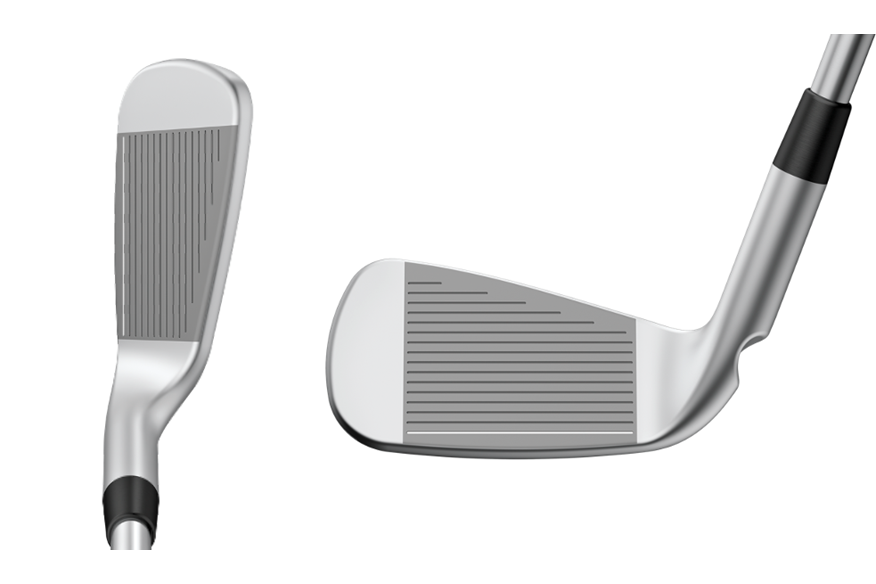
No stone left unturned
Ping see the new ChipR very much as a performance club. The head is cast from 431 stainless for a familiar iron feel, and you get MicroMax tighter spaced grooves, just like the brand’s brilliant i59 and i525 players’ irons.
A hydropearl finish helps dissipate moisture to further improve consistency, and compared to the original, the ChipR is also more compact, with more sole camber to aid turf interaction.
WATCH: Best 2022 Wedge video
How we tested the Ping ChipR
We played four rounds at different courses using the Ping ChipR and a gap wedge from where we’d usually attempt to loft chips and pitches onto the green. Once shots had come to a halt we recorded how far each ball finished from the hole (proximity to the hole).
From there we worked out if the ChipR delivered on its greater consistency claims.
Verdict: Ping ChipR
We never thought we’d say it, but the ChipR delivered tangible confidence gains and genuinely helped lower our scores – and I wouldn’t even say my short game was that bad.
From hard, bare, tight links turf it scuttled shots up onto raised greens brilliantly, where typically lots of club golfers chunk shots onto the top of the bank before the ball ends up back at their feet. Be under no illusion though you will of course on occasion need to hit higher flighted lob shots when short sided and have an approach over a bunker.
The decision we grappled with most was whether to adopt a putter or chipping grip. None felt quite right initially, but the longer we used the ChipR the more we liked the idea of matching everything with it to what you do with a putter. The idea of using a putter style stroke when chipping is brilliant; it feels comfortable, reliable and confidence building in an area of the game that can cause serious anxiety.
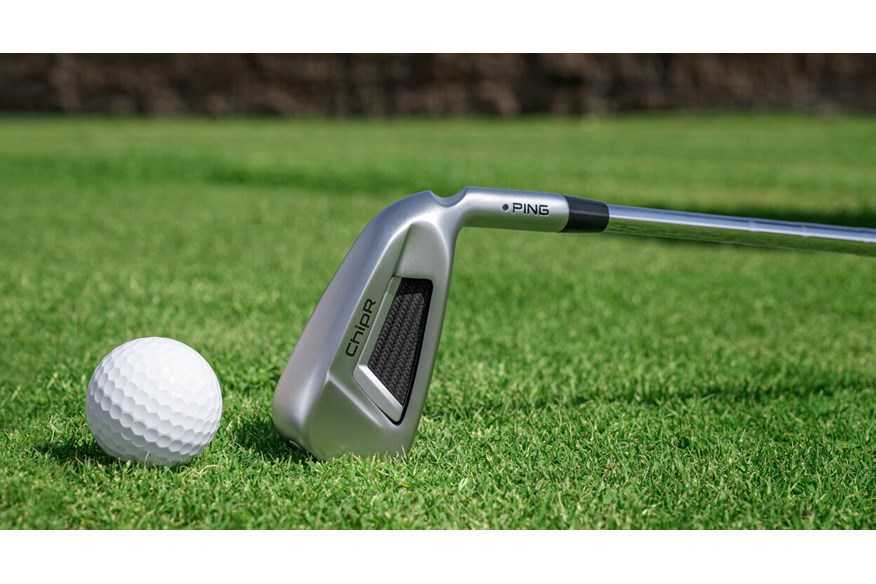
Distance control was also easier and more reliable than hitting long putts from off the green.
Including a couple of fat and thin shots our gap wedge proximity to the hole averaged out neatly to 15 feet. The ChipR impressively reduced that to 11 feet, and because every shot with it finished on the green we had a chance to hole out to reduce scores further. Any bad shots just weren’t that bad – they still hit the green – which for many club golfers is a very acceptable outcome.
If you’re intrigued and want to work a ChipR into your bag you will need space for it. We teamed a 52° gap wedge with a 58° lob/sand wedge, which freed up space for the ChipR.
Take the plunge and you’ll soon get over apologising for ungainly running shots up closer to the flag more frequently than you have for years.
READ NEXT: Best 2022 Wedge Test
Product Information
Ping ChipR
RRP: £160 (s) £170 (g)
Loft: 38.5° (similar to a 9-iron)
Shaft length: 35”
Lie angle: 70° (which is like a putter where a PW is often 64°)
Weight: 325g (more like a LW or putter)
Visit the Ping website here for more information
